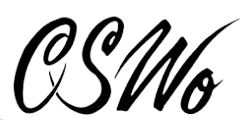 No matter how many times you’ve been through the process, job interviews can cause undue anxiety. While hiring managers generally understand when you make an honest mistake or draw a blank when asked a question, any lack of judgment or poor manners will take you out of the running—and even damage your long-term reputation.
No matter how many times you’ve been through the process, job interviews can cause undue anxiety. While hiring managers generally understand when you make an honest mistake or draw a blank when asked a question, any lack of judgment or poor manners will take you out of the running—and even damage your long-term reputation.
Of course, your resume should always be up to date—but even if you are happy with your current company and position, it never hurts to brush up on your interview techniques.
Inexcusable Mistakes While there are definitely some things you should do and say when interviewing, there are also some mistakes that are becoming more and more common. According to a January 2013 CareerBuilder survey of employers, the biggest turnoffs candidates made during an interview were:
- Answering cell phone or texting: 60 percent
- Appearing disinterested: 62 percent
- Dressing inappropriately: 60 percent
- Talking negatively about current or previous employers: 58 percent
These mistakes are easy to avoid and should be common sense for most of us. Turn off your phone, pay attention, dress professionally, and never say anything negative about an employer or colleague. That said, what should you do to set yourself apart during an interview?
Phone Interviews Frequently, the first step in the hiring process is a phone interview. It saves you and the recruiter/employer time, and gives the hiring manager a feel for who you are. Don’t make the mistake of thinking a phone interview isn’t worth the time it takes to prepare for the call.
- Do your research. Before picking up the phone, make sure you know who you are speaking with and find out everything you can about the company.
- Set aside enough time. Just because you are speaking on the phone doesn’t mean the hiring manager doesn’t have a series of questions you will answer. You can cause yourself unnecessary anxiety if you’ve scheduled another meeting or appointment too close to your interview.
- Find a quiet location and focus on the interview itself. Don’t look at your email, drive around town, be seated at the food court in the mall, or have music in the background. Make sure you have a pad of paper handy and are fully attentive to the phone conversation.
- Ensure good phone reception. Most people understand if you lose cell reception, but it can be nerve-wracking to have to call the interviewer back or wait for the person to call you back. You might even consider using an old-fashioned landline!
Take All Interviews Seriously Here’s a story of a colleague who recently had a phone interview with a recent college grad for an entry-level position.
“I could hear the ding ding ding of the car, the slam of the car door, and the car engine starting. “Didn’t we agree to a phone interview at this time?” I asked. “Yes,” she said, “But she obviously was driving somewhere.“ Needless to say, the interviewer did not take the candidate very seriously. Don’t make this mistake! The interview reflects what kind of candidate you are, and regardless whether you want the job, you need to put your best foot forward at all times. After all, your reputation is everything—you never know who the interviewer knows or if there are other positions he or she is trying to fill.
In-Person Interviews Obviously, if you make it past the phone interview, you did something right. Continue the trend in an in-person interview by using the following tips:
- Look directly at the interviewer. People don’t trust you if you can’t look them in the eye. If there is more than one person in the room, make sure you make eye contact with everyone during your comments.
- Listen. During the interview, the interviewer will give you information about the job, the corporate culture, and the company expectations. Make sure you pay attention!
- Ask questions. When you listen, you’ll know what questions to ask, and by asking clarifying and relevant questions, you show the interviewer that you are interested, intelligent, and thoughtful. Be sure not to ask random questions that don’t pertain to the subject just to create some kind of conversation.
- Answer the question you are asked. Interviewers know when you are avoiding a topic or changing the subject. If you don’t know an answer or don’t have the experience, be honest.
- Be yourself. Understand your strengths and weaknesses. Be polite. Let yourself shine through. Being stiff and stilted will not give the interviewer a sense of who you are.
 Don’t Become Another Amusing Story Hiring managers have all kinds of stories---the lady who dumped an entire bowl of candy into her pocket, the guy who called his wife to find out what was for dinner during the interview, or the interviewee who had such a high opinion of himself he asked for a week off before he was offered the job. While these are the exceptions rather than the rules, they happen. Think before speaking during a job interview, try your best and you will succeed. . AICPA Career Development Resources Want to know more about how to survive a merger? How about information about your personal brand? There are a number of resources available for review on the Career Development pages of the Young CPA Network website. Visit this page often for continuous updates.
Don’t Become Another Amusing Story Hiring managers have all kinds of stories---the lady who dumped an entire bowl of candy into her pocket, the guy who called his wife to find out what was for dinner during the interview, or the interviewee who had such a high opinion of himself he asked for a week off before he was offered the job. While these are the exceptions rather than the rules, they happen. Think before speaking during a job interview, try your best and you will succeed. . AICPA Career Development Resources Want to know more about how to survive a merger? How about information about your personal brand? There are a number of resources available for review on the Career Development pages of the Young CPA Network website. Visit this page often for continuous updates.
Source: AICPA Young CPA Network






